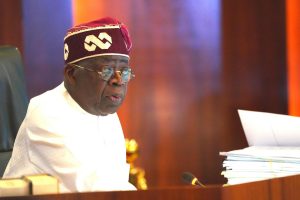NLC rejects fuel price hike, demands reversal

Salvador, Brazil - December 6, 2016:Attendant is seen doing supply with gasoline in vehicle in fuel station in the city of Salvador (BA). (ISTOCK / Joá Souza).
The Nigeria Labour Congress has kicked against the new fuel price of N143.8 announced by the Petroleum Products Price Regulatory Agency on Wednesday, saying “this might just be the last straw that would break the camel’s back.”
The congress demanded a reversal of the pump price to the old price, arguing that that the prices of crude oil in the international market had only slightly increased from the previous price before the downward review was announced two months ago.
The NLC President, Ayuba Wabba, in a statement on Thursday, described the hike in the fuel pump price and the proposed electricity tariff hike as “potent threat to run millions of Nigerians under.”
He asked the Federal Government to rehabilitate the refineries and disclose the timelines for this.
Wabba flayed the PPPRA Executive Secretary, Saidu Abdulkadir for the fuel price hike, noting that “he did not even feign pretence that government has abdicated its responsibility to protect Nigerians from the cut-throat tendencies of neo-liberal market forces.”
Wabba noted, “Nigerians would recall that the last downward review in the price of petrol was at the beginning of the COVID-19 lockdown. The economic benefits of the so-called “downward” review were hardly enjoyed by ordinary Nigerians who were mostly indoors.
“Just as the lockdown is being eased out and as soon as the interstate travel ban was lifted, the government decided to hike the petrol price. Nigerian people and workers are forced to interpret this move as grand mischief and deceit.
“It is clear even to the blind that the crisis in our downstream petroleum sub-sector is ‘self’ nay government-inflicted.”
The congress attributed the crisis in the downstream sector to the refusal by successive governments to fix the national oil refineries.
“Government simply wants to transfer the cost of its own inefficiencies to the Nigerian people. Nigerian workers say ‘No’ to such. There is no way Nigerians would accept a situation where we are charged international rates for a product which Nigeria is the sixth-largest producer in the world.
Adelani Adepegba, Abuja





